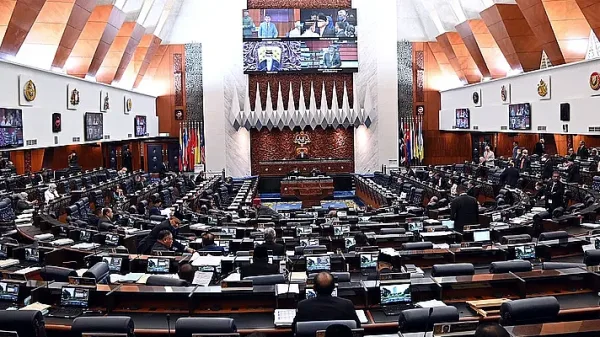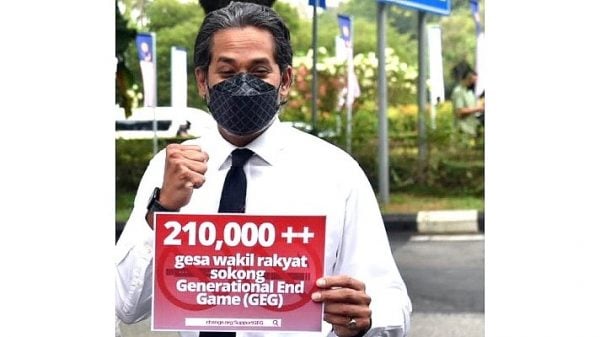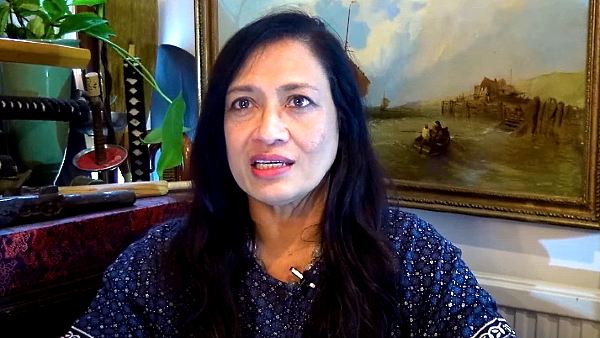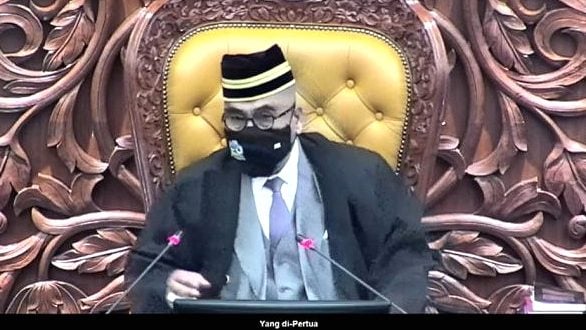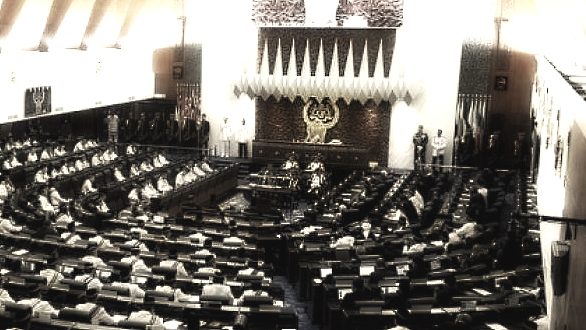The government must not overlook the deficiencies in some of the bills in its bid to rush through their adoption in parliament.
In the current parliamentary meeting, the government has been rushing through several amendment bills to get them adopted in the Dewan Rakyat, including some controversial ones that have been delayed for years.
Legislation needs to move in tandem with the times, and be in line with global and societal needs so as to fully protect the nation’s interest and the people’s rights.
The legislative process is a reflection of the sitting government’s will and resolution in implementing the reforms.
The bills may not be impeccable and comprehensive and therefore require the stringent scrutiny of lawmakers to make them more attuned to public needs.
Among the so many bills tabled in the parliament, the Constitution (Amendment) Bill (No. 3) 2022 undeniably commands the most public attention.
On Wednesday, prime minister Datuk Seri Ismail Sabri Yaakob tabled the much delayed and controversial bill. The bill was subsequently adopted with the support of 209 lawmakers on Thursday in the second reading, well above the two-thirds majority threshold needed for it to be enacted into law.
The purpose for this bill is to cement political stability and avert endless political turmoil as elected representatives switch their affiliations.
Despite some disagreement during the legislative process with rival camps hitting out at each other, the bill was eventually finalised through negotiations between the government and the opposition.
Generally speaking, despite its shortcomings, the bill is poised to have certain positive effect on reining in the behaviours of political parties and individual reps.
While the bill is far from being perfect, it has nevertheless been adopted by all parties, a phenomenon touted by PM Ismail as a historical moment in the country’s history.
As for the deficiencies of the bill, it should be constantly deliberated, ameliorated and amended day to make it more consistent with the initial intent of the legislation.
Equally eye-catching is the adoption of Sub-section 4(11) of the Security Offences (Special Measures) Act 2012 (SOSMA) to extend for another five years the enforcement Sub-section 4(5) allowing the police to detain a suspect suspected of being involved in terrorist activities for a period not exceeding 28 days for investigations.

During the last parliamentary session, the bill failed to be passed due to the absence of sufficient numbers of ruling and opposition reps present.
In this session, not only did we have enough MPs present to vote, the home ministry also had a special briefing to explain the purpose of police empowerment to prevent serious criminal cases and terrorist activities, in a bid to win the support of the opposition.
Nevertheless, the opposition remains insistent that existing laws are enough to deal with crimes and the 28-day detention without trial is therefore unwarranted.
Many opposition lawmakers are themselves victims of this Act, and they concur that it has contravened the principle of checks and balances in a democracy.
The opposition and human rights groups also see the Act as violating human rights.
Another bill related to the police, namely the Independent Police Conduct Commission (IPCC) Bill 2020, was also passed in a third reading at Dewan Rakyat.
While the bill does have a deterrent effect on police misconduct and help restore public confidence in the country’s police force, there are nevertheless some deficiencies, including limitations to the committee’s powers and the requirement for the complainant to lodge a report in writing with attached particulars which may put off some of the potential complainants.
Even though the bill has been deferred for quite some time, it is unbecoming for the home ministry to overlook its deficiencies in a bid to rush through its adoption.
Additionally, after years of reviews and efforts in getting it passed in the parliament, the Anti-Sexual Harassment Bill was finally adopted in the third reading, a landmark breakthrough in the protection of women and the underprivileged.
Similarly, the bill has its share of deficiencies. The Association of Women Lawyers (AWL) feels that certain words in the provisions need to be further amended to ensure the comprehensiveness of sexual harassment courts in line with the spirit of the Convention on the Elimination of All Forms of Discrimination Against Women ( CEDAW).
The women’s ministry needs to listen to the views of all parties in a bid to perfect the law.
Next, public attention will shift to the Tobacco and Smoking Control Bill that will bar new generation individuals born after 2007 from acquiring cigarettes and other tobacco products. The bill currently receives quite substantial support from the general public.
Although some of the MPs are hesitant over this, it is generally believed that the bill will eventually get passed, too.
As health minister Khairy Jamaluddin has said, tobacco tax revenue will never offset the money spent on treating smoking-related diseases.
ADVERTISEMENT
ADVERTISEMENT






